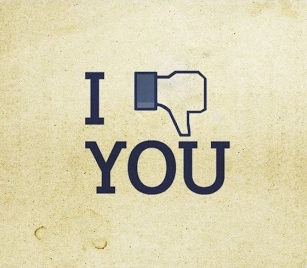
Not long ago, I finally pulled the plug on my Facebook account. Since I have never been involved in any other social media platforms, this long considered action on my part has resulted in my social media profile being reduced to exactly zero (as long as my website, YouTube channel, and involvement in a bass message board don’t qualify as “social media”). Even in the brief time between the time I removed my account and now, I have received concerned communications from friends and acquaintances who were worried about my mental health or wondering if my withdrawal from the platform indicated I was in some form of deep psychic distress. In truth, the answer is much simpler than that.
By way of reply, I assure these kind and concerned people that I am fine, but that over the past few years I have come to view “Social Media” as something more akin to “Anti Social Media” because of the way it tends to either:
- Herd people into like-minded Borg-like “friend hives” of perceived group think that stands in united opposition to opposing group think, or;
- Cause people to needlessly argue with online “friends” who stand on the opposite side of some divisive issue or other.
Either way, this holds no attraction for me. Personally, I’m not interested in a social Borg friend-hive outside of taking part in a community of bass players who talk about a shared love of bass and music, (which I don’t need social media to participate in). As for the second part of the above description, it has always seemed to me that people engaging in this type of activity are exhibiting what I imagine my grandfather would have called a digital version of what was called “Liquid Courage” in his generation.
The Oxford English Dictionary defines “Liquid Courage” as Alcohol, regarded as a means of reducing one’s inhibitions. This is a polite and politically correct version of the definition of the same term found in the Urban Dictionary, which describes it as, Any alcoholic beverage that turns a person mean, brave or excited. Named for the instant burst of courage (and often stupidity) that comes from drinking it. Combine the two definitions, and you might reasonably come up with a definition that reads something along the lines of, Alcohol, which tends to render the user artificially brave and lacking inhibitions or filters; overuse of this form of courage can cause one to end up unintentionally inserting ones foot – and in extreme cases, even the majority of one’s entire leg – directly into one’s mouth, causing unintended consequences and embarrassment once sobriety returns.
Oxford doesn’t list a definition for the term “Digital Courage” as of the time of this writing, but Urban Dictionary has an excellent definition of it, which reads: The propensity to type, via the internet , what you would never say in real life. “Filled with digital courage Trevor(white male) began throwing the n-word around all over the African American hip-hop message board.”
This definition resonates as a common sense rendering of the term, but it leaves too much wiggle room for argument when applied to social media usage. A social media proponent might argue, “the definition isn’t true, because I would totally say what I said on Facebook in real life; in fact, I have said that in real life many times”. This might well be true, but to this I would ask the questions, “To whom would you say this? To how many of your friends and acquaintances? All of them? What about other people you might not have been aware of who were lurking on the periphery of the conversation? Would you have wanted them to have this be the first thing they hear from you, with no foreknowledge or context of who you are?”
And for me, herein lies the problem with social media. The great thing about it is that you can reach thousands of people just by typing on a keyboard. The terrifying thing about it is that you can send your every whimsical thought out to potentially millions of people just by typing on a keyboard. And once somebody reacts to it and/or shares it, you can’t take that thought back. You might think you are having an intimate conversation with a small group of friends as you would in real life, but the bigger truth is that on social media there are often other people who will be privy to that conversation that you never thought about, and they can appear out of nowhere in an instant and turn what was intended as a shared confession to a friend into an ugly argument that can then be quoted and shared with even more people that you would never in a million years have voluntarily shared that information with.
For example, most social media users have wandered into this trap at least once: a friend posts an opinion that could be seen as political, and some of their friends, wanting to be supportive, like and agree with their sentiment. You weigh in in support of their view in an attempt to be positive and let them know that they are not alone. So far, all is well. But then out of nowhere, somebody who is a “friend” of one of the other people in the conversation, who you may or may not know but who is on the other side of the issue, wanders in throwing angry flames at everyone for their views. Then the group of like-minded people will attempt a group rebuttal, and things tend to go downhill from there. Then later, at some point a number of these people run into each other in real life with a new sense of concealed (if all parties are lucky) resentment about the episode, leaving the participants further apart than they would have been had they never spoken before at all.
For people who prefer intimate conversation to small talk, the problem with social media is the reverse correlation between the number of people involved in a conversation and the potential intimacy of that conversation. We share different parts of our thoughts with someone who is close to us than with a crowd of strangers, and for good reason: it is a wasted opportunity to talk about nothing with an intimate friend, and it is insanity to show all of your cards to a group of people who might well use them to do you harm.
We have all probably seen someone post something in the heat of the moment or in a hurry without thinking through the number of people that post might reach and how they might react. When this happens, we have all probably had some version of the thought, “oh man, they are going to be sorry they said that when the backlash starts”. If so, we probably had this thought because we had previously made the same sort of mistake on some (hopefully minor) scale in the past. Because of this, when my account was still active I took to posting by the mantra of my personal version of the M’Naghten rule, which is actually technically the “policeman at your elbow test” for people who plead insanity when confronted with their crimes. It goes something like this:
The policeman at the elbow test is a test used by some courts to determine whether the defendant was insane when he committed a crime. It is a variant of the M’Naghten Rules that addresses the situation in which the defendant knew that what he was going to do was wrong, but had no ability to restrain himself from doing it. The test asks whether he would have done what he did even if a policeman was standing at his elbow, hence its name.
This seemed like a reasonable solution for a while, but at some point I kept getting dragged back into the same sorts of situations by others who, emboldened by their Digital Courage, turned a positive situation into a negative one by inserting divisiveness where it didn’t have any reason to be. And everyone else in the vicinity gets caught in the crossfire. It comes out of nowhere and there’s nothing anyone can do to stop it… except refuse to travel in the vicinity of these events.
For me, this means not participating in “social” media. Because in that neighborhood, the policeman is always at your elbow whether you recognize it or not. And even if our digital courage doesn’t seem to carry repercussions on that particular day, our words of anger, or resentment, or ignorance, or just plain carelessness remain out there for all to see for the foreseeable future, just waiting to be discovered and used by anyone with an axe to grind for any reason, real or imagined, fair or unfair.
And this is where I got off the bus, and why. Old school face-to-face communication is better by a country mile. At least there my courage (or lack thereof) is real, and the policeman at my elbow is the neighborhood beat cop who is more likely to understand the way people talk in that locality, and to have the best interests of the neighborhood in mind. Much better, I think, to deal with an Andy Griffith in my hometown than a Joseph McCarthy watching me from virtually everywhere. Unfortunately, these days I bet even that simple statement would be social media troll bait for someone.
Right. Thanks, but no thanks…. life is too precious, and far too short.

I also quitted from Facebook, Instragram and Whatsapp for several reasons. I also threw ayaw my smartphone. Well done. the real world is outside the web. No Internet Abuse. Ciao! Andrea